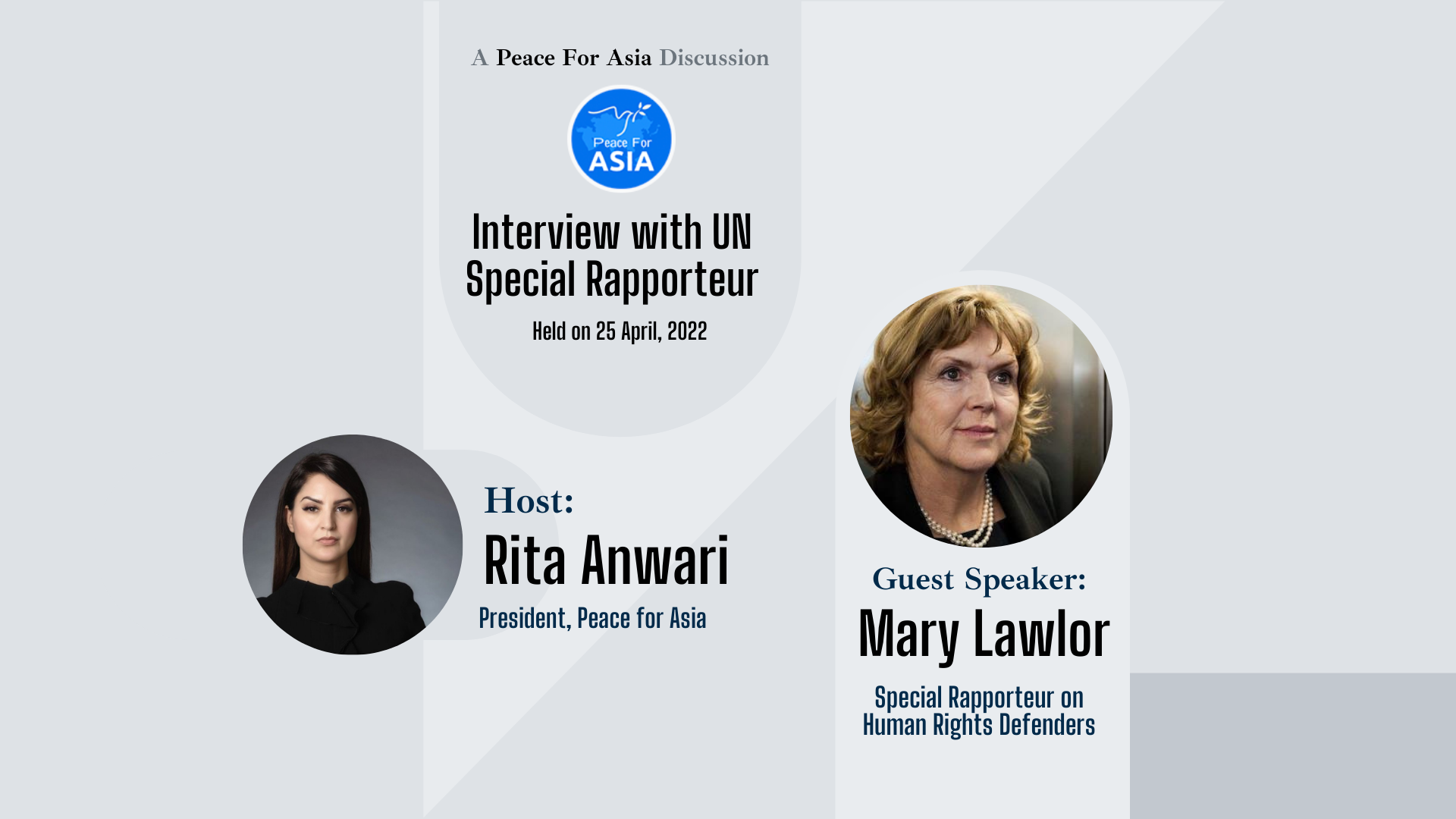To watch the interview click here
On 25th April, Peace for Asia interviewed UN Special Rapporteur on Human Rights defenders Ms Mary Lawlor. The discussion touched upon multiple themes, beginning with her journey in the field of Human Rights followed by her appointment as the Special Rapporteur, and the mandate and challenges faced by her office.
Ms Lawlor began her career in the 1970s and spent a considerable part of her career at Amnesty international, where she realised the immense potential of Human Rights Defenders as agents of social change. In 2001 she established front Line Defenders, an organization working towards providing round the clock protection to Human Rights Defenders at risk. She retired from Front Line Defenders in 2016 and in 2020, she was appointed as the Special Rapporteur for Human Rights Defenders.
The mandate of the office is to ensure that those rights contained in the Declaration on the Human Rights Defenders are being respected by states as well as raise awareness about the legitimate work of Human Rights Defenders and advise UN members states on steps to be taken to increase the safety and security of the Human Rights Defenders. The key tool is Official Communications in the form of letters to states where Human Rights Defenders are targeted (the states have 60 days to respond if they choose to do so). The special Rapporteur reports to the Human Rights Council and General Assembly every year. The mandate notwithstanding, the biggest challenge lies in reaching out to the states where Human Rights Defenders are at great risk.
Ms Lawlor shared her experience working on behalf of Human Rights Defenders in Ukraine and Afghanistan. Concerning Afghanistan, Ms Lawlor identified the reluctance of many states in the West to offer more asylum places to Human Rights Defenders who remain in grave danger in the country, including those who had spent over a decade working for international development and humanitarian aid organizations which were often supported by Western governments. While welcoming the responses of Western states to Ukrainian Human Rights Defenders in the current crisis, Ms Lawlor pointed out that the contrast with the treatment received by Afghan defenders was notable. In the case of Afghanistan, while the international community is all too aware of the Taliban and its Human Rights record, there is a lack of clarity on the points of action. That said, in October 2021, the UN Human Rights Council passed a resolution to create the position of Special Rapporteur on Afghanistan to “probe violations carried out by the Taliban and other parties to the conflict, amid growing concerns for the erosion of civil rights”.
With the mandate to raise issues and bring the situation of Human Rights Defenders to the notice of the UN and the broader international community, the office of the Special Rapporteur has played a proactive role in amplifying the voices of conscience across the world. However, Ms Lawlor stated that her position faced certain constraints due to international law and the onus was on the respective states to respond to the concerns raised by her office and ensure that they were complying with their international human rights obligations.

